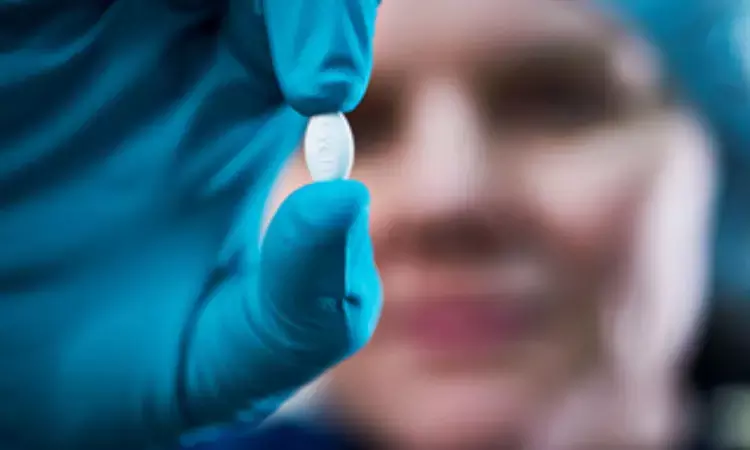- Home
- Medical news & Guidelines
- Anesthesiology
- Cardiology and CTVS
- Critical Care
- Dentistry
- Dermatology
- Diabetes and Endocrinology
- ENT
- Gastroenterology
- Medicine
- Nephrology
- Neurology
- Obstretics-Gynaecology
- Oncology
- Ophthalmology
- Orthopaedics
- Pediatrics-Neonatology
- Psychiatry
- Pulmonology
- Radiology
- Surgery
- Urology
- Laboratory Medicine
- Diet
- Nursing
- Paramedical
- Physiotherapy
- Health news
- Fact Check
- Bone Health Fact Check
- Brain Health Fact Check
- Cancer Related Fact Check
- Child Care Fact Check
- Dental and oral health fact check
- Diabetes and metabolic health fact check
- Diet and Nutrition Fact Check
- Eye and ENT Care Fact Check
- Fitness fact check
- Gut health fact check
- Heart health fact check
- Kidney health fact check
- Medical education fact check
- Men's health fact check
- Respiratory fact check
- Skin and hair care fact check
- Vaccine and Immunization fact check
- Women's health fact check
- AYUSH
- State News
- Andaman and Nicobar Islands
- Andhra Pradesh
- Arunachal Pradesh
- Assam
- Bihar
- Chandigarh
- Chattisgarh
- Dadra and Nagar Haveli
- Daman and Diu
- Delhi
- Goa
- Gujarat
- Haryana
- Himachal Pradesh
- Jammu & Kashmir
- Jharkhand
- Karnataka
- Kerala
- Ladakh
- Lakshadweep
- Madhya Pradesh
- Maharashtra
- Manipur
- Meghalaya
- Mizoram
- Nagaland
- Odisha
- Puducherry
- Punjab
- Rajasthan
- Sikkim
- Tamil Nadu
- Telangana
- Tripura
- Uttar Pradesh
- Uttrakhand
- West Bengal
- Medical Education
- Industry
Novel, oral GLP-1 receptor agonist significantly reduced HbA1c and weight in type 2 diabetes patients: Phase IIa trial

USA: Findings from a phase IIa trial revealed a significant reduction in weight and HbA1c (-3.26% and -1.02% placebo-adjusted change with 90 mg, respectively) after 12 weeks with a novel, oral GLP-1 receptor agonist in patients with type 2 diabetes.
A clinical-stage global biopharmaceutical company Structure Therapeutics Inc. provided a comprehensive development program update for its highly selective oral GLP-1 receptor agonist, GSBR-1290.
“We are pleased that we have achieved the objectives of our first Phase 2a clinical trial of GSBR-1290 in T2DM patients which were to demonstrate favourable safety, tolerability and efficacy results and guide our plans to further optimize the already encouraging performance of GSBR-1290,” said Raymond Stevens, PhD, Founder and CEO of Structure. “Our data demonstrated that once-daily GSBR-1290 has the potential to be a best-in-class compound and a backbone for future combinations that could address large cardiometabolic indications.”
The findings were based on a randomized, double-blind, 12-week placebo-controlled Phase 2a clinical trial. the trial enrolled a total of 94 participants, including 60 participants randomized to GSBR-1290. The T2DM cohort enrolled 54 participants, randomized to 45 mg (n=10) or 90 mg GSBR-1290 (n=26), or placebo, dosed daily.
Initially, the obesity cohort enrolled 40 people randomized to GSBR-1290 120 mg (n=24) or placebo (n=16), once once-daily. An additional 24 participants are currently being enrolled in the obesity arm as previously announced and will also be randomized 3:2 to GSBR-1290 or placebo.
The primary endpoint of the Phase 2a study is the tolerability and safety of GSBR-1290. Key secondary endpoints include a reduction in weight for both cohorts, as well as a reduction in HbA1c for the T2DM cohort.
The researchers reported the following findings:
- The majority (88 to 96%, depending on the study arm) of adverse events (AEs) reported were mild to moderate.
- There were no serious adverse events (SAEs) related to the study drug. Leading AEs were gastrointestinal-related. The two most common AEs were nausea and vomiting.
- Of the 60 participants dosed with GSBR-1290, only one participant discontinued the study due to AEs related to the study drug (none in the obesity cohort and one (2.8%) in the T2DM cohort).
- There were no cases of elevated liver enzymes in the obesity cohort. One participant in the T2DM treatment group experienced an event of elevated liver enzymes without an increase in bilirubin initially at day 8 while receiving 5 mg of the study drug. This participant was diagnosed with fatty liver disease while in the study.
- In the T2DM cohort, there was a statistically significant HbA1c reduction (- 1.01 to -1.02%, placebo-adjusted) at Week 12. The study demonstrated a statistically significant and clinically meaningful reduction in weight at Week 12 (-3.26% to -3.51%, placebo-adjusted). Weight loss continued to decrease through Week 12.
- Results of the interim analysis in the obesity cohort showed a statistically significant and clinically meaningful decrease in weight at Week 8 (-4.74%, placebo-adjusted) (table 4). Weight loss continued to decrease throughout the eight weeks of treatment.
“GSBR-1290 has demonstrated proof of concept in individuals with both obesity and T2DM, with clear effects on both weight loss and HbA1c that has the potential to increase with longer duration of treatment,” said David D’Alessio, M.D., Chief of the Division of Endocrinology and Metabolism at Duke University.
“The unmet medical need for both T2DM and chronic weight management continues to be very large, and the GLP-1 receptor is a target with considerable potential. Safe and effective oral small molecule GLP-1 receptor agonists would be a significant advance in that they could expand access for many patients for whom this is not now possible.”
Dr Kamal Kant Kohli-MBBS, DTCD- a chest specialist with more than 30 years of practice and a flair for writing clinical articles, Dr Kamal Kant Kohli joined Medical Dialogues as a Chief Editor of Medical News. Besides writing articles, as an editor, he proofreads and verifies all the medical content published on Medical Dialogues including those coming from journals, studies,medical conferences,guidelines etc. Email: drkohli@medicaldialogues.in. Contact no. 011-43720751


